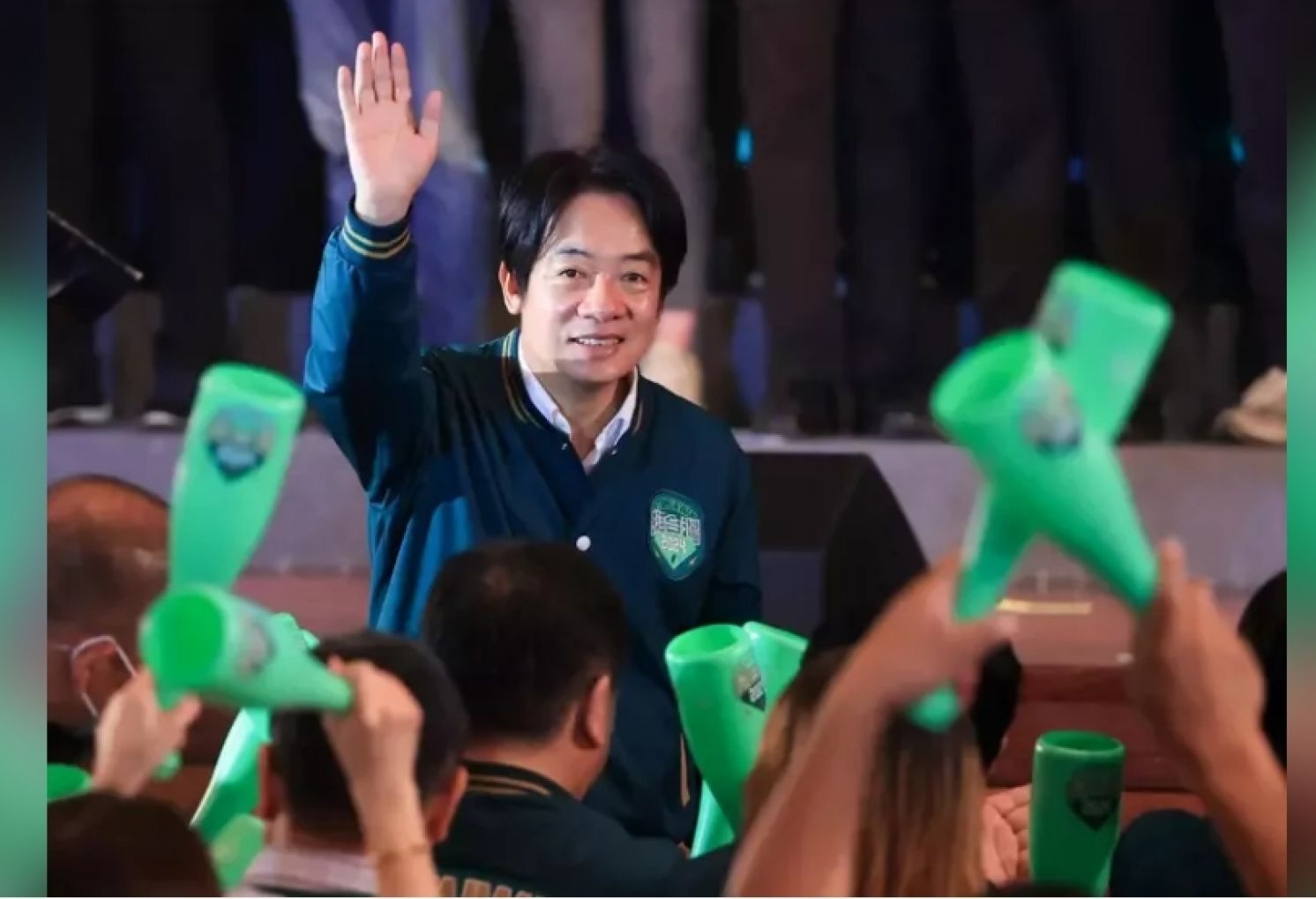
Lai's White House Dream:Hitting the Wall Even Before Meeting Trump
United Daily News Editorial, July 21, 2023
Vice President William Lai is scheduled to lead a delegation to visit Paraguay next month. However, the government acted unusually discreetly on the matter. It did announce Mr. Lai’s transit trip through the United States but failed to mention the specific transit location. Furthermore, Mr. Lai's statement last week saying, “When Taiwan’s president can enter the White House, the political goal that we’re pursuing will have been achieved,” seems to have brought about unexpected repercussions. The Financial Times reported that Mr. Lai’s "White House remarks" has raised concerns in Washington about his cross-strait policy, prompting demands for Taiwan’s authorities to clarify his statement.
As a presidential candidate, Mr. Lai's transit through the United States could have been utilized as an advantageous issue by the ruling Democratic Progressive Party (DPP). Nevertheless, the administration of President Tsai Ing-wen handled it with prudence, indicating that his transit treatment will not be of high significance or be emphasized. There may be three reasons for this:
First, the Biden administration is currently busy repairing relations with Beijing, and tensions have only slightly eased after visits to China by Secretary of State Antony Blinken, Secretary of the Treasury Janet Yellen, and Special Presidential Envoy for Climate John Kerry. Right now, the United States would not want to jeopardize those efforts by making any missteps during Mr. Lai’s transit. In other words, Mr. Lai’s transit is encountering an inopportune sensitive period, and he is unlikely to receive an enthusiastic embrace from the United States.
Second, Mr. Lai identifies himself as a "pragmatic advocate of Taiwan independence." Although he emphasizes the term "pragmatic," the United States is more concerned about the "advocate of Taiwan independence" part. As a result, Washington has harbored doubts about Mr. Lai, believing that he might not be able to maintain a more flexible or stable cross-strait approach like President Tsai. Despite his attempts to clarify and revise his position during the campaign, it appears to have been ineffective, and the United States is worried about his potentially "outspoken" remarks in America, which could lead to unmanageable situations.
Third, the Taiwan presidential election’s outlook remains uncertain. Chairman Laura Rosenberger of the American Institute in Taiwan (AIT) has maintained an open mind while meeting with candidates from major parties, hoping to treat them all fairly. If the Biden administration were to grant Mr. Lai a high-profile reception, it might be interpreted as having specific preferences, thus violating the principle of "equality." Consequently, handling the receptions of other potential visitors, such as Kuomintang (KMT) presidential candidate Hou You-yi’s visit in September or Taiwan People’s Party (TPP) presidential candidate Ko Wen-je's potential overseas trips, could become more challenging.
Surprisingly, while the United States was still arranging Mr. Lai’s transit visit, his "White House remarks” brought even more trouble for him. From Taiwan's perspective, it is absurd for a presidential candidate to consider "entering the White House" as the ultimate goal. If his eyes are solely fixed on the United States, where does "serving the people" stand in his priorities? If this is Mr. Lai's belief, then he should undergo strict scrutiny from the voters. After all, is Taiwan’s goal in electing a president only to send him to the White House?
However, another possibility behind Mr. Lai's "White House remarks" may be his naiveté and impracticality. In his political career, Mr. Lai has been fond of making grandiose moral statements. But his overzealous acting often comes across as rigid and contradicts higher principles. For example, when he was the Tainan mayor, Mr. Lai refused to attend the city council in protest against vote buying by the City Council speaker. Yet this action also undermined democratic oversight mechanisms, highlighting his tendency to prioritize himself over the established system. From an American standpoint, Mr. Lai's "White House remarks" also offended the existing "One China” policy, suggesting his attempt to influence or overturn Washington's foreign policy, which is surely a diplomatic taboo. When he passionately talked about "entering the White House" during meetings with Yilan residents and overseas compatriots, he probably did not realize that he had crossed the line, resulting in unfavorable consequences for himself.
It is a boastful and exaggerated act to distort America’s friendly stance towards Taiwan by stating that Taiwan’s president can "enter the White House" or even by implying a U.S.-Taiwan establishment of diplomatic relations. It also exposes Mr. Lai's impracticality, immaturity, and lack of prudence. Let us not forget that former President Donald Trump, who is challenging incumbent President Joe Biden again, is likely to deliberately sing a different tune regarding U.S.-China relations to gain leverage. If Mr. Trump is elected, Taiwan's strategic position will be redefined by Washington, a matter that all Taiwan presidential candidates should handle with caution. Mr. Trump's recent statements manifested that he not only refused to commit to sending troops to defend Taiwan but also suggested imposing tariffs and trade barriers on Taiwan. Would Mr. Lai be able to navigate this huge obstacle?
Mr. Lai's "White House remarks” are more like political rhetoric rather than a personal dream. It can be seen as a politician's reckless utterance, leading to self-inflicted damage. He has run into a wall even before encountering Mr. Trump.